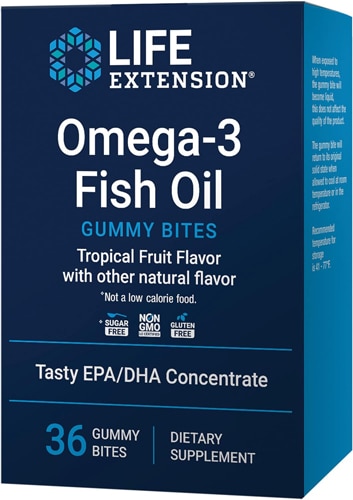[vc_row][vc_column][vc_column_text]When you see or hear the word “inflammation,” alarm bells probably start going off in your head. After all, inflammation gets a bad rap and is generally seen as something you want to
avoid when you’re trying to stay healthy.
But what if we told you that inflammation isn’t something to be afraid of? Combined with prioritizing a healthy lifestyle, there are more benefits of inflammation than you may think!

What is inflammation?
While the term itself goes all the way back to the Roman Empire,
inflammation has become a buzzword in health and wellness circles (and for good reason!). But what exactly is it?
Part of your body’s built-in defenses, inflammation is the body’s natural biological response to physical stimuli and is a response that can be experienced throughout different parts of your body. Inflammation is a normal process that is activated
when your body encounters specific factors or challenges.
But does that necessarily mean it’s bad for you? That’s the million-dollar question. And the answer is…well, yes and no.
Like most things, this process is beneficial—in moderation. Inflammation at its best is a protective and useful way for the body to “check in,” help clear out challenges and let you know that it’s doing its job to keep you well.
But just like inflammation checks in on you, it’s essential to your well-being to not let
it go unchecked. And that requires supporting a
healthy inflammatory response.
Benefits of supporting a healthy inflammatory response
It’s important to keep tabs on how your body responds to the different factors that can impact its healthy function. This certainly includes supporting a healthy inflammatory response, which is an essential part of health, comfort and well-being.
A healthy inflammatory response means:
And much more!
So how exactly do you support your healthy inflammatory response? We’ve got a wealth of foods, supplements and lifestyle tips to help you along the way.
Do specific foods help maintain a healthy inflammatory response?
You are what you eat—and that especially rings true when it comes to food for supporting a healthy inflammatory response. While there are plenty of diets you can follow, with its emphasis on plant foods, lean protein and healthy fats, the
Mediterranean diet is the clear winner for
whole-body health.
Some foods you should consider adding to your diet include:
- Oily fish—Omega-3 fatty acids are one of the single best compounds for maintaining a healthy inflammatory response. They’re a great source of healthy fats, which are necessary for a balanced diet. Look for options like salmon, tuna and mackerel.
- Olive oil—Olive oil is high in polyphenols, which benefit the heart, healthy blood flow and a healthy inflammatory response. Be sure to choose a high-quality olive oil to complement your meals.
- Nuts and seeds—Go nuts for nuts! These also provide heart-friendly healthy fats and are a great option as a standalone snack, or salad or cereal topper.
- Whole grains—Switch out your white bread and rice for heartier and healthier options. Bulgur, barley and farro are also good whole grain options to add to your rotation.
Pro tip: Want to take the flavor and the health benefits of your meals to the next level? Season them with herbs and spices that also support a healthy inflammatory response! The next time you’re in the kitchen, consider incorporating superstars
like turmeric, ginger, garlic, rosemary, basil, sage, sesame and cinnamon into your dishes. No matter whether you prefer sweet or savory tastes, you have plenty of options to add to your plate!
Supplements for promoting a healthy inflammatory response
Good news! While food is a great way to take advantage of whole-body health benefits, if you can’t get enough of what you need in your diet, there are supplements that contain most of the nutrients you need in capsule or tablet form.
- Curcumin—This golden spice (an extract from turmeric) gets a gold star for supporting overall wellness. Compounds in curcumin called curcuminoids benefit nearly every part of your body, contributing to the health of the joints, organs, brain, immune system, digestion and pancreatic health. It’s also known for inhibiting inflammatory factors like lipoxygenase and cytokines to support whole-body health. The number of curcuminoids in standard curcumin is low, so look for formulas that prioritize bioavailability so you can take advantage of all its benefits.
- Ginger—Ginger is another nutrient that has big benefits on its own! Compounds found in ginger have been studied to support a healthy inflammatory response and promote immune health, alongside other whole-body health benefits. And what better way to enhance ginger’s benefits than by combining it with curcumin? Standardized ginger compounds complement curcumin’s ability to help promote a healthy inflammatory response, making it a clear choice for supplementing.
- Cumin seed oil—Did you know that balancing your immune health and your healthy inflammatory response are intricately tied and critical to lasting health? An active compound in black cumin seed oil, thymoquinone, has been studied to support both a healthy immune system and inflammatory response. There’s even ancient wisdom behind it: this oil was a favorite of King Tut!
- Bromelain—This enzyme, made from the stem of pineapple, is not only good for promoting joint health and comfort (especially when joints are at rest), but it also helps inhibit inflammatory factors to support joint function as well as general well-being.
- Omega fatty acids—Make sure you’re getting the right combo of omega-6s and other types like omega-7s to complement the benefits of the omega-3s in your diet and supplements.
- EGCG—Epigallocatechin gallate, a compound from green tea extract, is a well-known antioxidant that supports healthy aging. But did you know that it also helps support a healthy inflammatory response? This polyphenol inhibits inflammatory factors like cytokines to support overall health.
Although no supplement is a substitute for healthy choices, adding these nutrients to your routine can help you maintain a healthy inflammatory response for the long haul.
Other lifestyle tips for whole-body health
When it comes to promoting a healthy inflammatory response, certain factors, like environmental stressors and toxins, can be unavoidable. But if you’re conscious of these other choices along with a healthy diet and proper supplementing, your body will thank you!
- Avoid smoking and drinking—Certain lifestyle choices can impact all aspects of your health. This includes unhealthy habits like alcohol consumption and smoking. While alcohol in moderation is okay, be mindful of how these habits might be affecting different parts of your health.
- Prioritize restful sleep—Don’t sleep on quality shut-eye! Sleep is essential for helping your body rest and recover. Aim for 7-9 hours of sleep per night to support your best health.13
- Manage stress—Unmanaged stress can have a ripple effect on your health. Ensuring you’re promoting a healthy stress response is key to your well-being.
- Exercise regularly—One of the single best things you can do (especially as you age) is to keep yourself moving! Try to get at least 150 minutes of moderate-intensity aerobic exercise, combined with 1-2 strength training sessions per week.
†These statements have not been approved by the Food and Drug Administration. These products are not intended to diagnose, treat, cure or prevent disease.
[/vc_column_text][/vc_column][/vc_row][vc_row][vc_column][vc_text_separator title="Featured Products" border_width="2"][vc_row_inner equal_height="yes" content_placement="middle" gap="35"][vc_column_inner width="1/3"][vc_single_image image="185036" img_size="full" alignment="center" onclick="custom_link" img_link_target="_blank" css=".vc_custom_1748361732957{padding-right: 7% !important;padding-left: 7% !important;}" link="https://www.vitacost.com/life-extension-bone-restore-with-vitamin-k2-120-capsules"][/vc_column_inner][vc_column_inner width="1/3"][vc_single_image image="185035" img_size="full" alignment="center" onclick="custom_link" img_link_target="_blank" css=".vc_custom_1748361772745{padding-right: 7% !important;padding-left: 7% !important;}" link="https://www.vitacost.com/life-extension-boron-3-mg-100-vegetarian-capsules-2"][/vc_column_inner][vc_column_inner width="1/3"][vc_single_image image="185034" img_size="full" alignment="center" onclick="custom_link" img_link_target="_blank" css=".vc_custom_1748361815995{padding-right: 7% !important;padding-left: 7% !important;}" link="https://www.vitacost.com/life-extension-vitamin-d3-250-mcg-1000-iu-250-softgels"][/vc_column_inner][/vc_row_inner][/vc_column][/vc_row]




